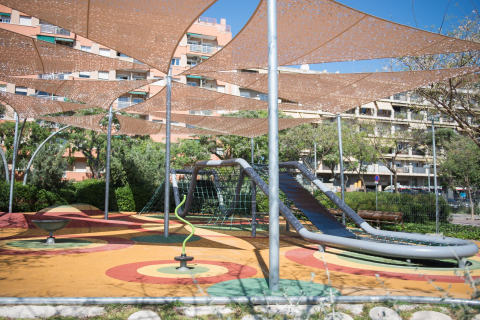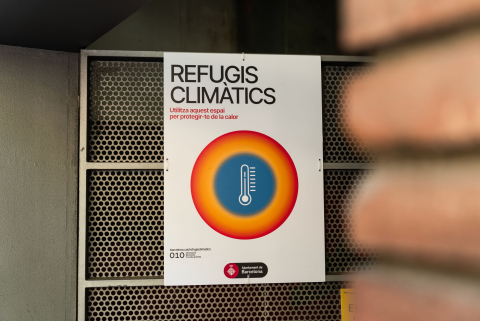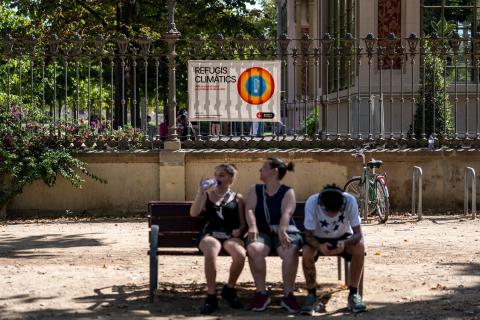






Municipal public facilities, commercial establishments and organisations offer spaces with warm temperatures to tackle episodes of intense cold weather.

It is the roadmap to make Barcelona a climate-neutral city and well-adapted to climate change by 2030.

We are introducing a four-year incentive plan (2026–2030) to replace combustion mopeds with electric models.
Barcelona has now achieved one of the main goals of the Climate Plan: to triple the solar power generation of municipal facilities.
Install solar panels on your rooftop. Save money on your bills while helping to combat climate change.
A new strategy to confront heat waves. This plan is the municipal response to the increase in extreme temperatures in order to protect people, especially the most vulnerable groups.
Home
BARCELONA FACING CLIMATE CHANGE

Given the challenges posed by the climate emergency, Barcelona is taking measures to reduce emissions but also to adapt to the effects the city is already experiencing and will increasingly experience. Barcelona is therefore becoming a proactive city that adopts a comprehensive approach to tackling climate change and assumes its responsibility in that regard; a city that can find opportunities in difficulties and adapts to new climate conditions intelligently, generating co-benefits for people and socio-economic activity.
News
-
 07/01/2026 - 09:59 h Urban planning and infrastructures The city’s 301 climate shelters are activated to protect people from the cold
07/01/2026 - 09:59 h Urban planning and infrastructures The city’s 301 climate shelters are activated to protect people from the coldMunicipal public facilities, commercial establishments and organisations offer spaces with warm temperatures to tackle episodes of intense cold weather.
-
 26/11/2025 - 11:00 h Green spaces Open call for the cession of municipal spaces for community use to foster greenery and biodiversity
26/11/2025 - 11:00 h Green spaces Open call for the cession of municipal spaces for community use to foster greenery and biodiversityThis initiative is part of the “Mans al verd” project by the Municipal Institute of Parks and Gardens, which promotes the activation of green spaces on municipal sites that are currently unused. Application period from 26 November to 12 January, inclusive.
-
 21/11/2025 - 12:15 h Environment and sustainability Exchange and sustainability to celebrate European Week for Waste Reduction
21/11/2025 - 12:15 h Environment and sustainability Exchange and sustainability to celebrate European Week for Waste ReductionThe city is organising numerous awareness activities from 22 to 30 November.
-
 17/11/2025 - 12:51 h Environment and sustainability Subsidies to make the city’s mopeds 100% electric and zero emissions by 2030
17/11/2025 - 12:51 h Environment and sustainability Subsidies to make the city’s mopeds 100% electric and zero emissions by 2030The application period for the subsidies opens on 1 March 2026.



